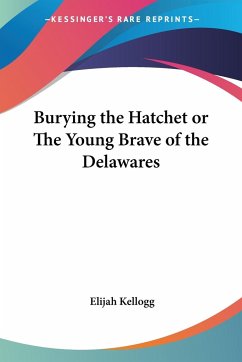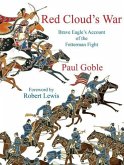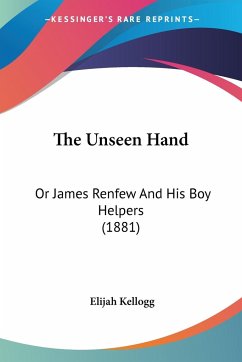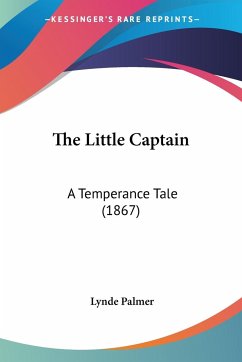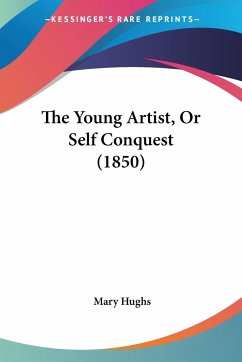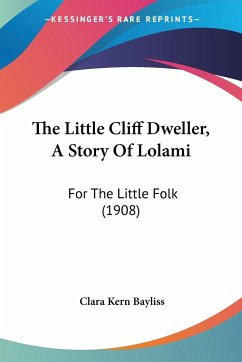1878. Illustrated. This is the final volume in Kellogg's The Forest Glen Series. In this concluding volume is presented their (the prominent persons in the series) last and bitterest trials, as also their hard-earned triumph, are recorded. As we track them by their blood along the brier-planted path they trod, our interest increases: we are often in doubt which most to admire, the dashing qualities of Harry and his comrades, the simple piety of Mrs. Sumerford, or the finely balanced character of Honeywood, keen of eye, lithe of limb, strong of arm, at home in danger, manifesting courage without ferocity, and neither intoxicated by success nor depressed by misfortune. Even the prejudices and vindictive passions of Holdness, McClure, and Israel Blanchard, are so mingled with nobler qualities and kindly sympathies, that while we contemplate their virtues we forget their faults. The melancholy history of Tony Stewart is one often repeated in frontier life, and evinces the weird influence exerted by savage life and companionship over young and plastic minds; while that of Sam Sumerford, his equal in age, pluck, and ardor of feeling, shows as clearly the formative power of home influence and family affection. The barefooted preacher, rifle in hand, and tomahawk in his belt, illustrates the superiority of gifts without culture, over culture without gifts. See other titles by this author available from Kessinger Publishing.
Burying the Hatchet or The Young Brave of the Delawares is a children's book written by Elijah Kellogg. The story follows the life of a young Native American boy named Wawanosh, who is a member of the Delaware tribe. Wawanosh is faced with the challenge of avenging his father's death, but he must choose between following the traditional ways of his people or embracing the peace-making teachings of the Quakers. The book explores themes of forgiveness, reconciliation, and cultural identity. It also provides insight into the historical conflicts between Native American tribes and European settlers in colonial America. The book is written in a simple, easy-to-read style and is suitable for children aged 8-12.1878. Illustrated. This is the final volume in Kellogg¿¿¿¿¿¿¿s The Forest Glen Series. In this concluding volume is presented their (the prominent persons in the series) last and bitterest trials, as also their hard-earned triumph, are recorded. As we track them by their blood along the brier-planted path they trod, our interest increases: we are often in doubt which most to admire, the dashing qualities of Harry and his comrades, the simple piety of Mrs. Sumerford, or the finely balanced character of Honeywood, keen of eye, lithe of limb, strong of arm, at home in danger, manifesting courage without ferocity, and neither intoxicated by success nor depressed by misfortune. Even the prejudices and vindictive passions of Holdness, McClure, and Israel Blanchard, are so mingled with nobler qualities and kindly sympathies, that while we contemplate their virtues we forget their faults. The melancholy history of Tony Stewart is one often repeated in frontier life, and evinces the weird influence exerted by savage life and companionship over young and plastic minds; while that of Sam Sumerford, his equal in age, pluck, and ardor of feeling, shows as clearly the formative power of home influence and family affection. The barefooted preacher, rifle in hand, and tomahawk in his belt, illustrates the superiority of gifts without culture, over culture without gifts. See other titles by this author available from Kessinger Publishing.This scarce antiquarian book is a facsimile reprint of the old original and may contain some imperfections such as library marks and notations. Because we believe this work is culturally important, we have made it available as part of our commitment for protecting, preserving, and promoting the world's literature in affordable, high quality, modern editions, that are true to their original work.
Burying the Hatchet or The Young Brave of the Delawares is a children's book written by Elijah Kellogg. The story follows the life of a young Native American boy named Wawanosh, who is a member of the Delaware tribe. Wawanosh is faced with the challenge of avenging his father's death, but he must choose between following the traditional ways of his people or embracing the peace-making teachings of the Quakers. The book explores themes of forgiveness, reconciliation, and cultural identity. It also provides insight into the historical conflicts between Native American tribes and European settlers in colonial America. The book is written in a simple, easy-to-read style and is suitable for children aged 8-12.1878. Illustrated. This is the final volume in Kellogg¿¿¿¿¿¿¿s The Forest Glen Series. In this concluding volume is presented their (the prominent persons in the series) last and bitterest trials, as also their hard-earned triumph, are recorded. As we track them by their blood along the brier-planted path they trod, our interest increases: we are often in doubt which most to admire, the dashing qualities of Harry and his comrades, the simple piety of Mrs. Sumerford, or the finely balanced character of Honeywood, keen of eye, lithe of limb, strong of arm, at home in danger, manifesting courage without ferocity, and neither intoxicated by success nor depressed by misfortune. Even the prejudices and vindictive passions of Holdness, McClure, and Israel Blanchard, are so mingled with nobler qualities and kindly sympathies, that while we contemplate their virtues we forget their faults. The melancholy history of Tony Stewart is one often repeated in frontier life, and evinces the weird influence exerted by savage life and companionship over young and plastic minds; while that of Sam Sumerford, his equal in age, pluck, and ardor of feeling, shows as clearly the formative power of home influence and family affection. The barefooted preacher, rifle in hand, and tomahawk in his belt, illustrates the superiority of gifts without culture, over culture without gifts. See other titles by this author available from Kessinger Publishing.This scarce antiquarian book is a facsimile reprint of the old original and may contain some imperfections such as library marks and notations. Because we believe this work is culturally important, we have made it available as part of our commitment for protecting, preserving, and promoting the world's literature in affordable, high quality, modern editions, that are true to their original work.

